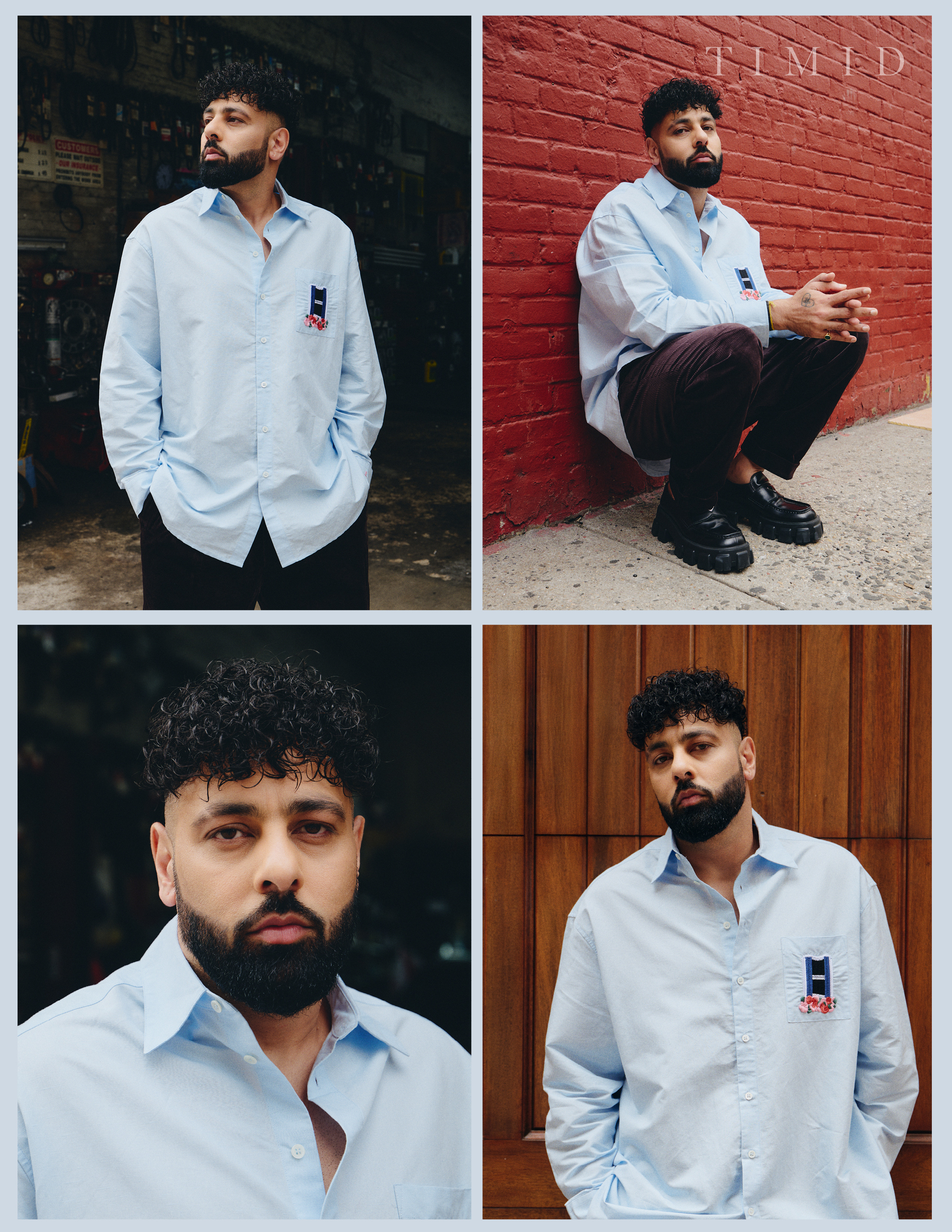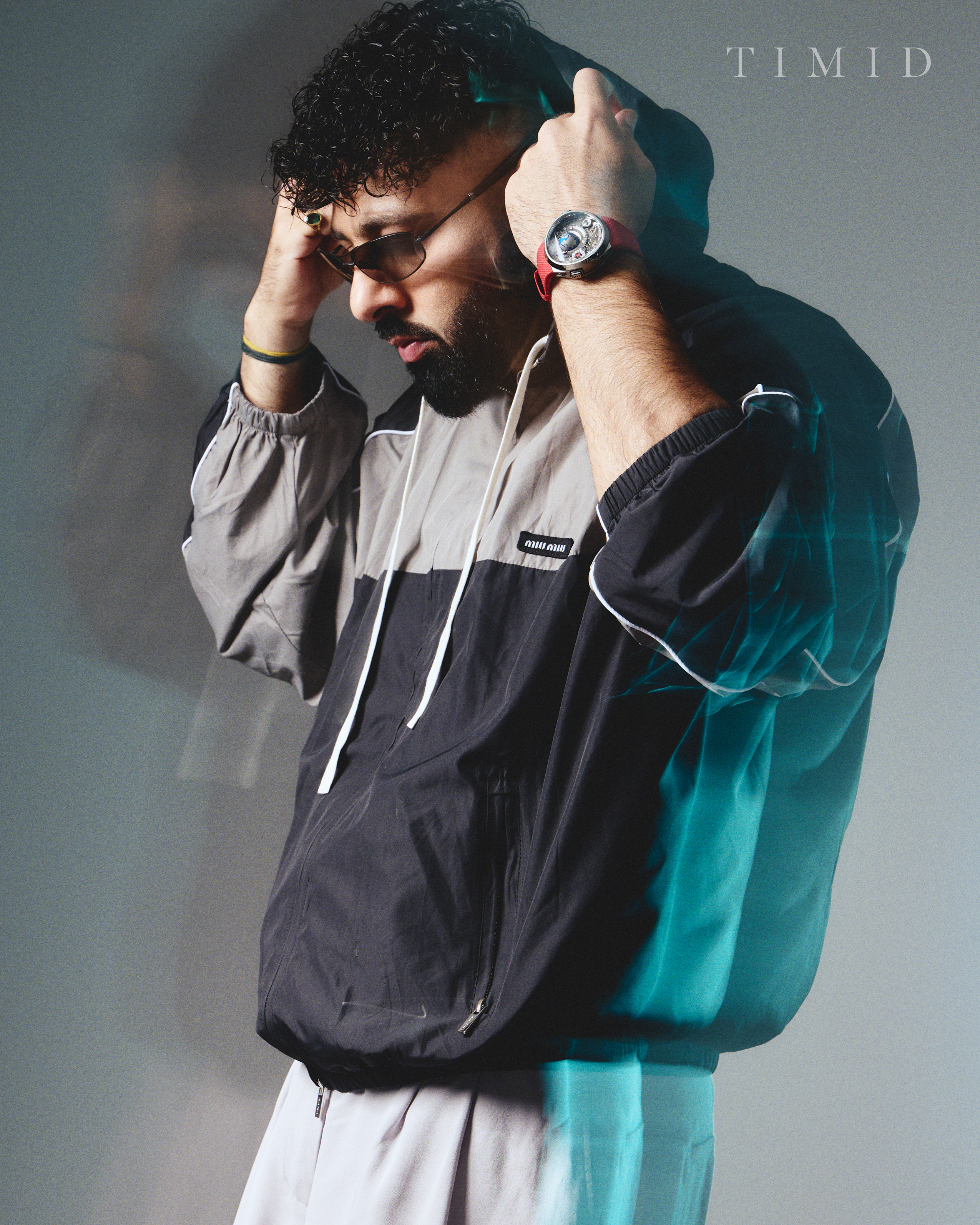
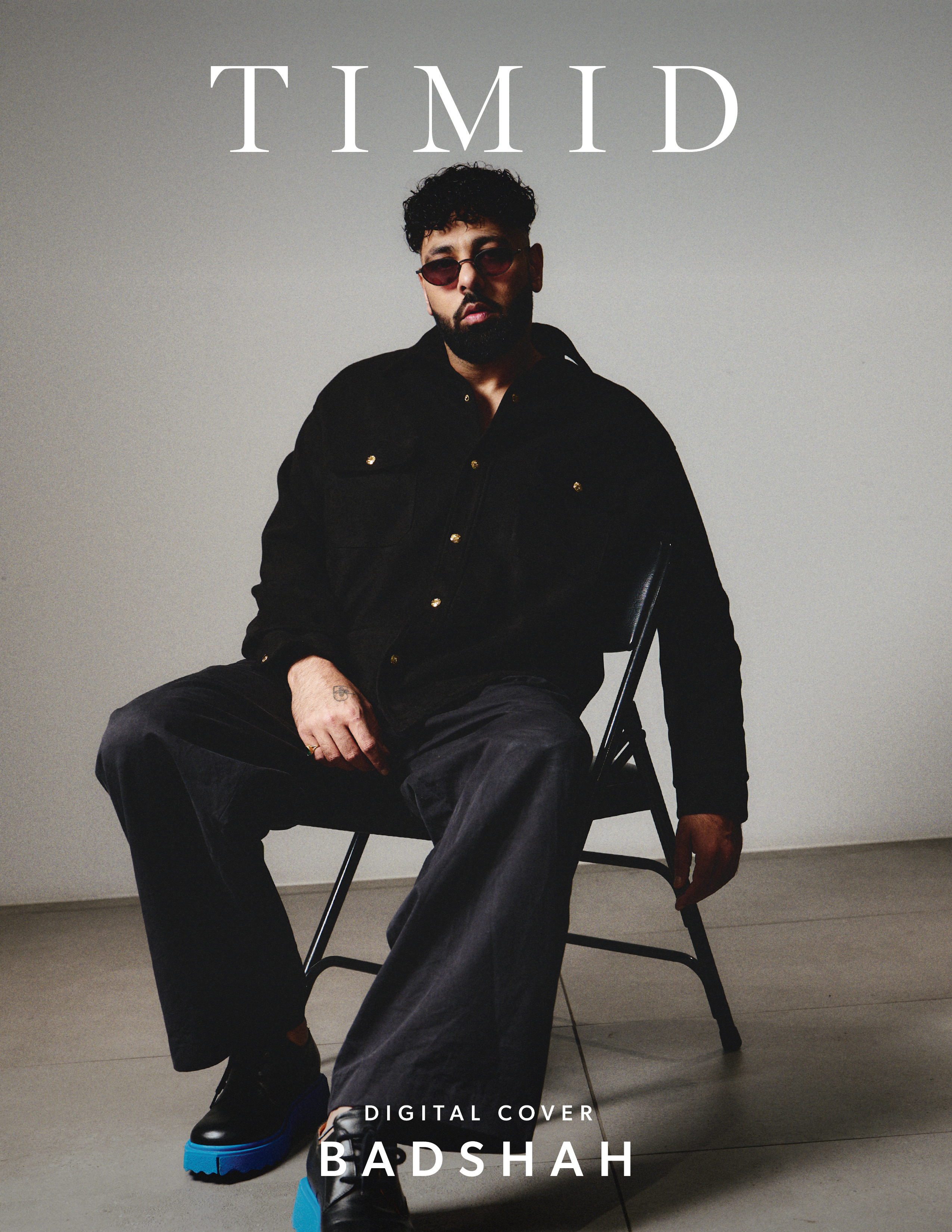
-
Talent: BADSHAH @badboyshah
Photos: Matthew Han @matte_han
Fashion: Victor Lopez @styledbyvictorlopez
Grooming: Javed Sheikh Abbassi @iamjavedsheikh
Photo Assist: CJ @cjbourque
Fashion Assist: Toprak @fowprak
Video: Piyush Sharma @pixelsbypiyush
Artist Publicity: Dream N Hustle Media @dreamnhustlemedia
Artist Management: TM Talent Management @tmtalentmanagement
Location: BR Blank NYC @brblank_nyc BLINDREASON Tattoo @blindreasontattoo
It’s one thing to sell out arenas. It’s another to fill them with generations—nanis, dadis, mothers, daughters—family legacies who grew up on Bollywood, swaying and singing along. When Badshah’s Unfinished Tour took to the stage this summer, the energy in the room wasn’t just about the beats—it was about belonging.
For over two decades, the renowned rapper has been at the forefront of shaping what it means for South Asians to see themselves on the global stage. His voice is instantly recognizable, with his iconic catchphrases “it’s your boy, Badshah” woven into the cultural fabric. But behind the hits, what makes his journey remarkable is his relationship with the people who he said got him there, his fans.
“Every fan moment has been memorable for me,” he told Timid. “I try to stay in touch with my fans as much as possible, because that keeps me grounded, motivated. As artists, we’re always on the road. We find families everywhere—small families in every city. When I come to the US, I have a small family of fans.”
Reflecting on his journey as an artist, Badshah shared how emotional it has been. “I’ve been making music for 20 years now,” he said, almost in disbelief. “Music is about emotions. Once you’re past a certain age, emotions get diluted and nothing hits like the first time. I don’t want to make art that’s diluted. I want to stay true to my emotions.”
For him, that truth lies in curiosity; he shared that he still feels a childlike hunger to feel things deeply with his music even after years of fame. “People say I’m childish, but I think that helps me. I stay curious. I stay hungry. I still want to explore more things. That helps me stay true to my music.”
It’s this authenticity that has enabled his songs to transcend generations. From club anthems to pop crossovers, his work resonates with listeners who see themselves reflected in the rhythm. “When I was younger, I made music for girls who were young,” he laughed. “Now I make music for the people, maybe a beautiful lady who probably has two kids but still hits the club. Nobody’s addressing them, so I’m here.”

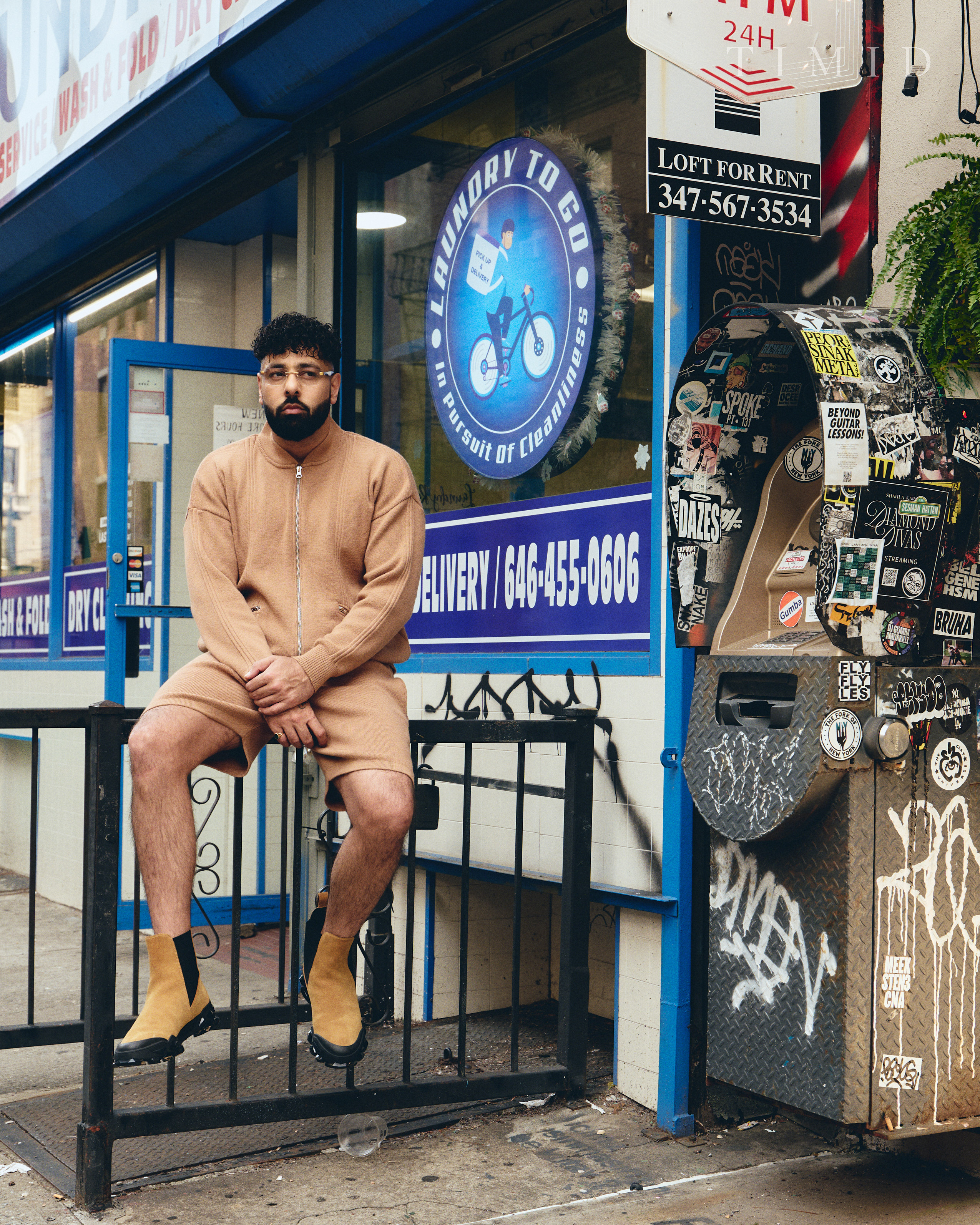
Badshah doesn’t separate his career from his fans. He sees them as the core of his story, a living inheritance. At his shows, the synergy between artist and audience becomes something larger than a performance—it’s a movement.
“It’s the people, the audience, who make the show,” he said. “We just put up an act. We can sing anywhere, but it’s when energies come together that synergy happens. After New Jersey, I told Nora Fatehi, who messaged me after, that I don’t think it was me who was performing. It was something else. You just become one in that room. That’s meditation.”
This connection, he explained, is the legacy he hopes to leave—a sense of community forged through music. Fan meet-and-greets aren’t transactional to him; they’re moments of mutual preservation. “That’s the only time we really get to interact with the people who love us the most,” he said. “I want to make it special for them, and for me. I want to make sure that I remember them and they remember me for the rest of their lives.”
Recalling the moment he realized music was his path, Badshah took us down memory lane. He told us about the first time he stepped on stage as a college student to open for his favorite band, Euphoria.
“That was my first time on such a big stage,” he recalled. “Interacting with the audience, I knew I had a gift that other people probably didn’t have. I thought, ‘this is it, this is what I want to do for the rest of my life.’”
That gift has since carried him to the global stage, where he now performs for crowds who sing along word for word. Yet he still admits to nerves before shows—a truth we’d never believe had he not shared himself.
“I listen to a lot of music in the green room. Anything that helps me. It could be 90s Bollywood, Middle Eastern music, even Pashto or Farsi songs that I don’t understand. It’s the sounds and frequencies in any music. I try to meditate, but really I’m shitting my pants,” he admitted laughingly.
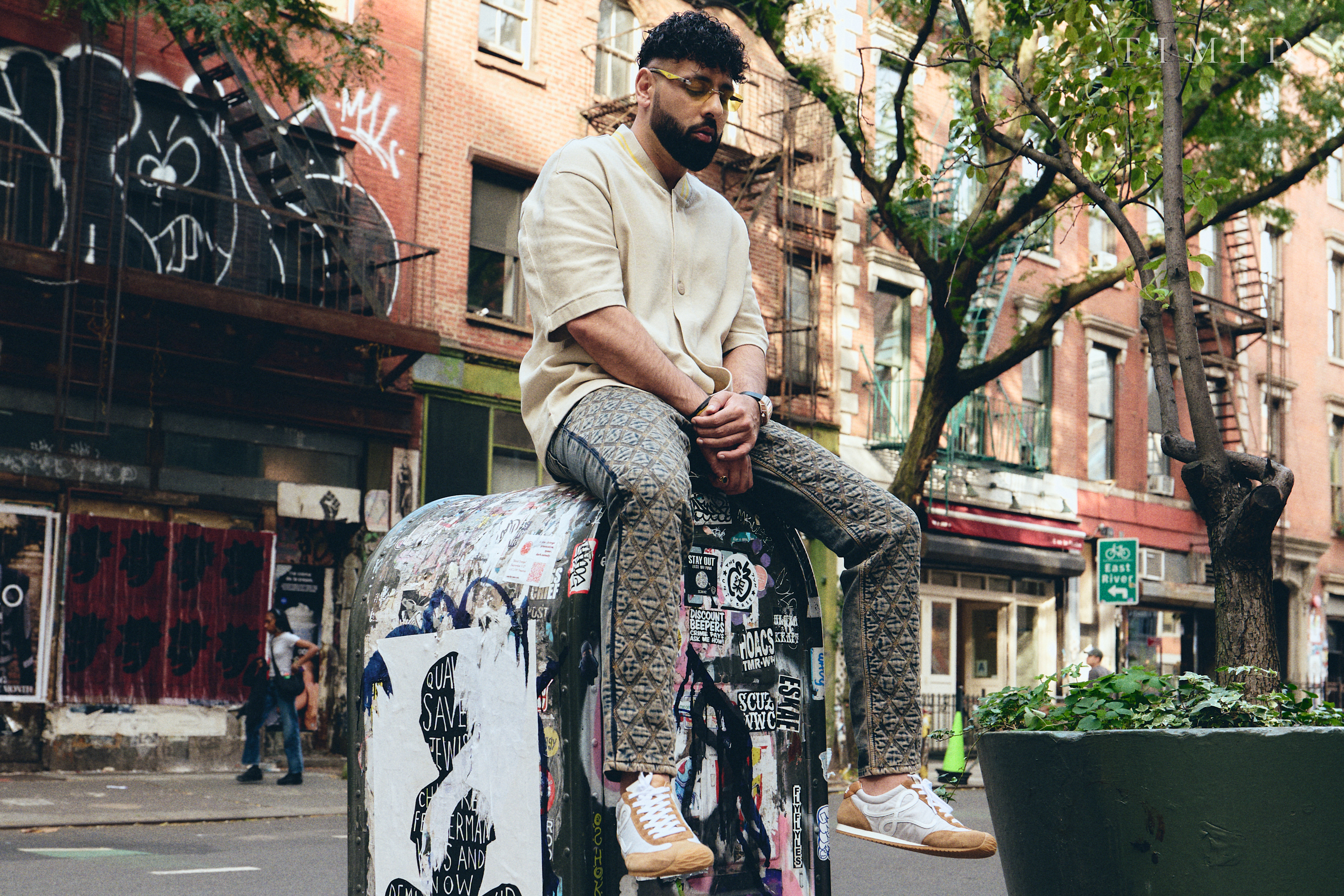
Onstage, though, the nerves dissolve. The energy shifts and Badshah attributes this to his fans and the energy they bring with them.
Imagining what he’d say to his younger self, the one who worried if music would ever happen for him, Badshah said he’d reassure him that belief is a driving factor. “I’d tell him, of course, it’s going to happen. You just have to believe. You’re a star, people just don’t know it yet. And I’d tell him to be wiser about managing money. There’s going to be a lot of it; use it wisely. Money is money, but what you do with it defines who you are.”
Much of that wisdom comes from his mother, he said, who taught him the value of empowerment. “You don’t need a lot of things, but what can we do with money? There are a lot of people who want to be happy, you could probably help them.” He added, “Rather than feeding fish to people, teach them how to fish. That’s what I believe in. That’s what my mother taught me… I want to empower people to make their own money.”
For Badshah, legacy isn’t about material things or even chart numbers. It’s about emotion, the way people feel when they leave his shows, when they hear his songs years later. “I want to be a reason for people to come together,” he said. “We end every show with ‘Abhi Toh Party Shuru Hui Hai’—the party is just getting started. That’s what I want people to feel. No matter what, the party isn’t over. Life is a party that should only get better.”
Leaving his shows, he wants audiences to continue laughing and enjoying one another’s company. It’s a sentiment that captures why his fans remain so fiercely devoted. Badshah doesn’t just make music; he makes people feel seen, energized and connected.
And maybe that’s his truest legacy: not just the hits, not just the global recognition, but the ability to remind generations of fans that joy is always within reach and the part has only just begun.
